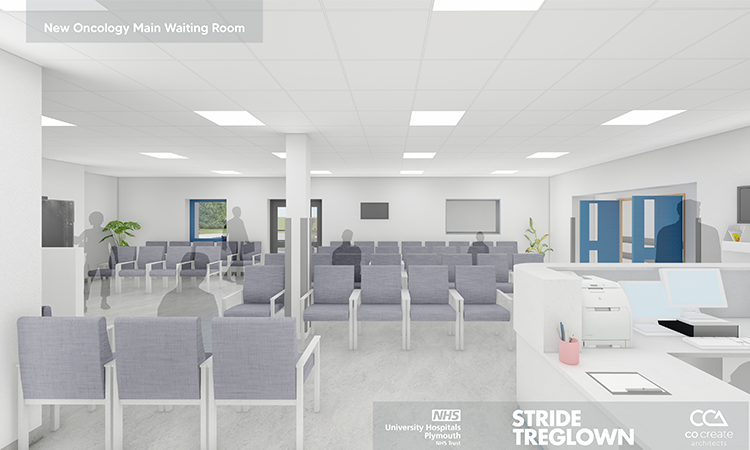LINAC bunker and Oncology extension
The Plymouth Oncology Centre at Derriford Hospital is undergoing an extension that involves building a new decant bunker to house a £1.9 million replacement linear accelerator (LINAC), and the creation of a dedicated High Dose Rate (HDR) Brachytherapy Facility.
LINAC bunkers, more commonly known as radiotherapy bunkers, contain equipment that are used primarily to treat cancer. It is important to provide the right level of radiation shielding to prevent high-energy rays from escaping the treatment room. To do this, the bunkers have walls and ceilings that are 2.2 metre thick, made of over 1400 tonnes of a specialist concrete called MagnaDense. This concrete is mixed offsite by a specialist company and brought in to be poured and cured in a complex process.
The new decant bunker currently under construction will not only house the new LINAC, but it will also allow for the future replacement of our existing ones, without any impact to radiotherapy services.
The new dedicated Brachytherapy Suite will include a treatment room, theatre area, waiting areas and recovery spaces. Being a complete theatre suite, it will also allow other procedures to be carried out in the area.








